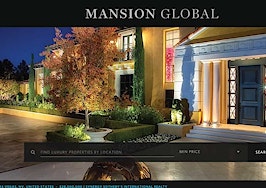- Affluent consumers are showing an increased interest in independent brands, including real estate companies.
- Learn your clients' passions and lifestyle and see if you can find a home that can support these.
- Find out what your buyer likes about their current home and what triggered the offer.
Would you like to understand your affluent homebuyer better?
Well, they don’t suffer fools — the majority of them are self-made and have achieved a level of excellence in their own fields — and they are looking for the extraordinary in their agents.
Luxury Portfolio International, the luxury arm of Leading Real Estate Companies of the World (LeadingRE), the global network of independent real estate brokerages, follows the changing needs of the affluent consumer very closely.
Real estate agents have to use their words carefully when first talking to a high net worth individual on the hunt for a new home, advises Luxury Portfolio International president Paul Boomsma.
Want to learn how to navigate the shifting global luxury market?
Register for Global Connect
How to open the conversation

Paul Boomsma
At the beginning of the conversation, agents should be asking their affluent buyers, “What is the lifestyle you are looking to lead and how can I help you achieve it?” he said.
Boomsma advises agents to find out their client’s passions.
For someone who likes food and an entertaining lifestyle — a high-energy entrepreneur, for instance — you may look for a house with an open plan kitchen/ dining space arrangement.
“But don’t say: ‘Do you do a lot of entertaining?'” advises Boomsma. “Many of them are self-made workaholics and don’t have time to entertain.” But they do like the idea of it, and they feel passionate about adopting the lifestyle.
Instead, say: “I can’t imagine anyone who would not want to come to a party at this house.”
Identify your client’s passion points
To make sure you are offering the best service, find out why they bought the home they are currently in, said the Luxury Portfolio president.
Ask: “What was the trigger — what is it is they love about living in the house?” advised Boomsma.
“You’ve got to understand how they are living in the house today, as much as they may want things to change.”
Know what your client knows
Successful consumers, most of whom are self-made in their wealth, are very good at researching the housing market, Luxury Portfolio research has found.
“You need to assume that your client has already explored everything that Google has to offer,” said Boomsma.
You need to give them knowledge rather than information, he added.
For instance, a clear message such as: “If you are interested in living in this street, we need to move quickly,” is valuable to clients.
Boomsma said agents have to talk clearly and with authority to their affluent clients about what it will take to buy a home in their chosen area.
If a client wants to end up on a certain street in their children’s “trick-or-treat years,” they need to realize that there is not a price on achieving this American dream and this period in their children’s lives is limited, he said.
For affluent consumers, it is all about being fulfilled in every aspect of their lives and feeling victorious.
According to Boomsma: “A happy client will say: ‘We were so lucky that our agent encouraged us to take the leap at the time — we are in the street we want to be for the next 10 years. The money is insignificant — the memories we have had, the life we have led, has been what matters.'”
Affluent NYC millennials highly rate real estate to show they have made it
Luxury Portfolio recently commissioned market research firm YouGov to conduct a number of focus groups with affluent New York City millennials.
The firm found that real estate ranked very highly in giving this demographic a sense of feeling established.
“When it comes to the affluent millennial, they see purchasing real estate as a bit of a rite of passage,” said Boomsma.
Real estate gives them bragging rights, added YouGov director Chandler Mount.
“In NYC, property ownership is such a huge aspect of what people do — it has played such a big role in their psyche,” Mount said.
Last year, Luxury Portfolio marketed over 50,000 luxury homes to 3 million high net worth visitors on LuxuryPortfolio.com and has recently released a white paper, “The New Rules of Luxury Living,” looking at the latest trends driving affluent consumers.
The conclusions were drawn from research it commissioned, “The Survey of Affluence and Wealth,” produced by Time Inc. and YouGov, a decade-long study of affluent people in 14 countries.
Affluent consumers prefer working with independent brands
One of the key findings highlighted in the white paper is that affluent consumers like working with independent companies in all areas, including real estate.
“More and more, high-net-worth people prefer brands that work independently from the mainstream. The trend is popular because of a commonly held belief that independent companies rely on their ability to provide better service, better training for staff and deeper local connections that big-market, big-brand companies don’t always provide,” said the research.
According to YouGov’s Chandler Mount, affluent consumers are looking for a high end and a high touch service.
“Independent real estate companies that are able to move quickly and have a tailored offering are very attractive to these consumers,” he said.
The Luxury Portfolio-commissioned research found that real estate was perceived as a highly personal experience, a celebration of their life, something that buyers were very excited about.
“Working with somebody with personality and connections to the local community seems like a more all encompassing experience,” said Boomsma.
An independent real estate company is more likely to be sponsoring the local 4th of July local fete or a sports team at the local high school.
“It is (seen as) engaged in the community and feels more authentic,” he said.
Affluent younger buyers don’t want the McMansion
Another trend the Luxury Portfolio research is finding is that affluent younger buyers may not be buying the large multi-home complexes their parents did. They want to live life relatively unencumbered.
“Some of these homes are just too much work,” said Boomsma.
“There are some properties where baby boomers have built compounds and the kids are like, ‘Are you crazy? This is an overwhelming amount of work.'”
Comfort and low-maintenance are becoming requirements of the young and wealthy.
As part of this, affluent consumers of all ages are very attracted by the shared economy companies such as Airbnb and VRBO, seen as making life more efficient and easy.
More affluent millennial buyer activity to come
The indicators, meanwhile, are that there will be some good buying activity by the young and well-heeled millennials in the next few years.
The transfer of wealth in this country has absolutely “skyrocketed” in the last couple of years, said Boomsma.
“Baby boomers are starting to gift money to their children. There has been astronomical growth in the last few years since the recession. The baby boomers are coming out of it and gifting money to their children,” he said.
The Luxury Portfolio president agreed with recent figures from the National Association of Realtors that around 23 percent of millennials were using money from family and friends for their affluent younger buyers.
Want to learn how to navigate the shifting global luxury market?
Register for Global Connect








